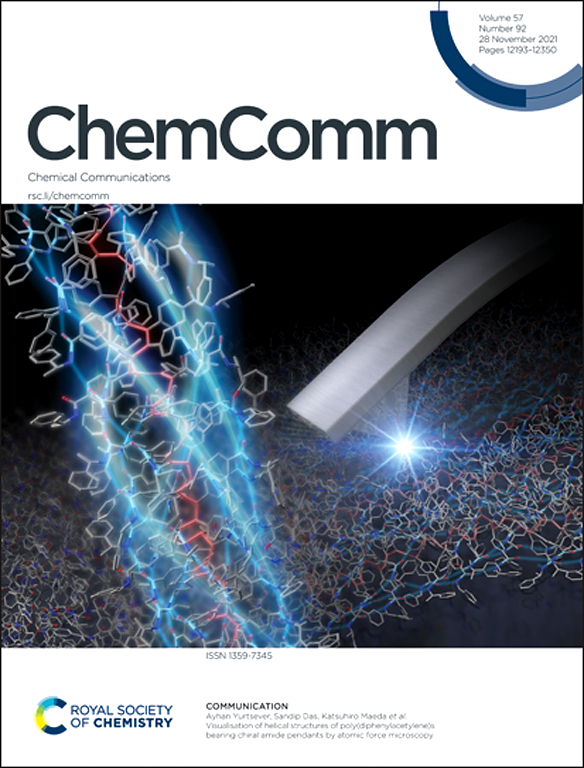CF2Br2的脱卤水解通过光催化自由基-极性交叉实现四组分氨基羰基化
IF 4.2
2区 化学
Q2 CHEMISTRY, MULTIDISCIPLINARY
引用次数: 0
摘要
酰胺羰基化是构建酰胺衍生物的关键策略,然而,实现高效的四组分催化变体仍然特别具有挑战性。在这项研究中,我们成功地开发了一种四组分氨基羰基化反应,该反应是通过光催化CF₂Br₂脱卤水解实现的。该方法具有广泛的底物范围,适用于各种胺,如二芳胺、芳胺、n -杂环和杂环胺。通过制备几种药学上相关的化合物和放大反应,进一步突出了该方法的合成效用。本文章由计算机程序翻译,如有差异,请以英文原文为准。
Dehalogenation hydrolysis of CF2Br2 enables four-component aminocarbonylation via photocatalytic radical-polar crossover
Amidocarbonylation represents a pivotal strategy for the construction of amide derivatives, however, achieving an efficient four-component catalytic variant remains particularly challenging. In this study, we successfully developed a four-component aminocarbonylation reaction enabled by the photocatalytic dehalogenation hydrolysis of CF₂Br₂. This methodology exhibits broad substrate scope, accommodating various amines such as diarylamines, arylamines, N-heterocycles, and heterocyclic amines. The synthetic utility of this approach was further highlighted through the preparation of several pharmaceutically relevant compounds and scale-up reaction.
求助全文
通过发布文献求助,成功后即可免费获取论文全文。
去求助
来源期刊

Chemical Communications
化学-化学综合
CiteScore
8.60
自引率
4.10%
发文量
2705
审稿时长
1.4 months
期刊介绍:
ChemComm (Chemical Communications) is renowned as the fastest publisher of articles providing information on new avenues of research, drawn from all the world''s major areas of chemical research.
 求助内容:
求助内容: 应助结果提醒方式:
应助结果提醒方式:


